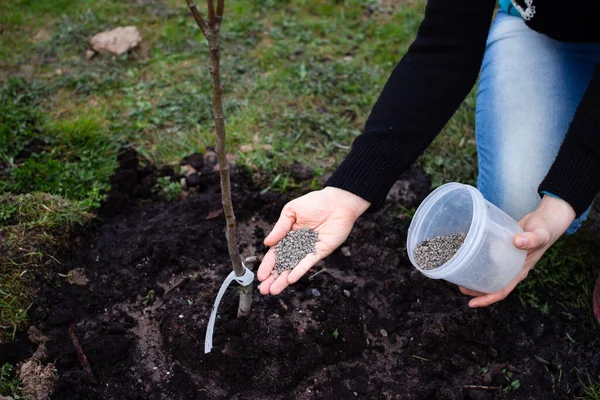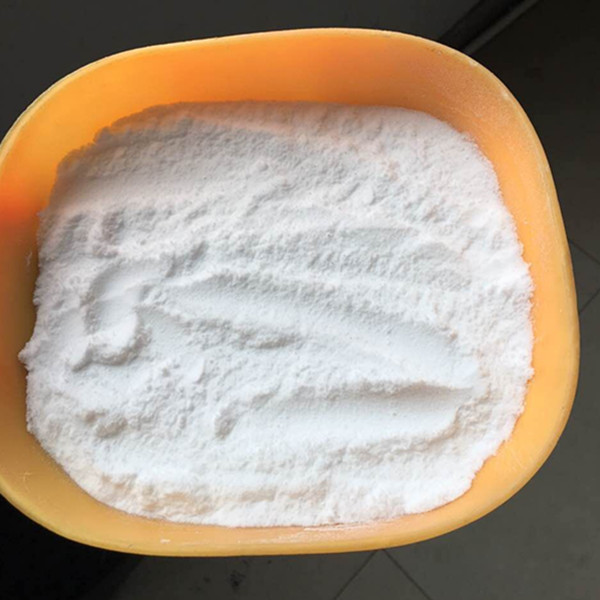Introduction
Sustainable gardening reflects a shift in philosophy regarding the human-nature relationship by focusing our attention on practices that promote long-term health and functioning. Soil health is more than just the nutrients it contains. It’s also the water-holding and nutrient-retaining capacity of its structure, and its level of microbial diversity. Without healthy soil to support it, the garden is going to be an uphill battle. Plants won’t thrive and the ecosystem won’t function properly.
These concerns, brought to the forefront in recent years with an explosion of global environmental consciousness and a rising awareness of what healthy soil means for food security but also our future, have reached even us in the home gardening world. But traditional gardening practices, by introducing overuse of chemical fertilisers and pesticides, have dwindled soil resources while destabilising its microbial balance. These potentially destructive practices have motivated a number of gardeners to shift to more sustainable alternatives, such as the use of natural organic fertilisers, in order to boost garden yields while respecting the environment.
Chemical synthetic fertilisers, often present in a crystalline form, are highly concentrated and carry high levels of nitrates, salts and other chemicals that can damage the biology of the soil as well as water quality. Natural organic fertilisers, derived from compost, manures and other plant residues, have a balanced and slow-release form of the nutrients needed for plants, and provide the inherent benefits of natural fertiliser sources. Gardeners that opt to use natural organic fertilisers will not only improve soil health and plant nutrition, but also reduce footprint and contribute to better environment, which means a healthier and sustainable garden ecosystem.
Understanding Natural Organic Fertilizers
Natural organic fertilisers are the foundation of sustainable gardening. They are not only good for the environment, as they provide organic matter to the soil and aid in the breakdown of rocks to release trace minerals; they also help plants grow strong and healthy. Natural organic fertilisers, as their name indicates, are made from organic materials. This includes any substance created by nature, such as the remains of Komodo dragons, but also the byproducts of plants and animals. Humus, bone meal, manure and compost are all natural organic fertilisers. All natural organic fertilisers are plant or animal products, or mixtures thereof.
In any case, plants easily digest natural organic fertilisers, which can reduce the risk of fertiliser burn on specific crops. In addition, compared with synthetic fertilisers, natural organic fertilisers are not burdened by intermediary industrial processes to produce different kinds of fertilisers. They naturally bring with them the characteristics and benefits of the primary organic source of the fertiliser. Natural organic fertilisers are nutritious foods for the soil and promote the growth of beneficial microbes and organisms in the soil.
Nutrient-rich compost is maybe the most popular of all the natural organic fertilisers – a mixture of decomposed organic material containing kitchen scraps (banana peels, apple cores, macaroni shells…), yard waste and other plant byproducts. It is brimming with garden-loving nutrients and other biological treasure, such as nitrogen, phosphorus, potassium, and beneficial microbes. Garden soils leavened with compost literally become richer, softer and sustain more abundant plantings. In similar fashion, manure, derived from animal waste, provides a concentrated nutrient source of nitrogen, phosphorus and potassium, among others, basic building blocks for plants and beneficial organisms alike.
Organic waste can also be mined for nutrients to feed our garden plants. By turning organic waste into soil-feeding resources, such as compost and manure, the gardener reduces his or her ecological footprint and pursues a greener approach to gardening.
Beyond compost and manure, natural organic fertiliser includes a host of materials, each offering unique attributes. Bone meal is the ground-up leftovers of animals, and is high in phosphorus, which spurs root growth and flowering in plants. Fish emulsion is the decomposed remains of fish, rich in nitrogen and trace minerals for full leafy plants and healthy vigorous growth.
Gardening with natural organic fertilisers, instead of synthetic fertilisation, builds the soil and nourishes us and the earth, preserving greenery and gardens for our children and their children’s children.

Soil Health and Sustainability
Soil health is critical to the success of natural organic fertilisers in gardening, as it refers to the characteristics of soil and its ecosystem that enable it to function as a natural system. An important aspect of soil health is its ability to sustain the passage of materials through the ‘biotic pump’ – including from soil microbes to plants, and then from plants and microbes to larger consumers, all the way up to humans and wildlife. Sustainable gardening attempts to maintain an ecosystem in balance and resilient to stresses, and emphasises soil health as a key aspect.
The role of natural organic fertilisers in healthier soils cannot be underestimated. They replenish organic matter in the soil, improve soil structure and microbial activity, and thereby act as critical sustainability measures. In contrast to synthetic fertilisers that can deplete soil quality in the long run, natural organic fertilisers build up soil fertility and structure for healthier plants and ecosystems, while also reducing chemical inputs into the environment and soil degradation.
And last, but not least, healthy soils support broader sustainability goals like carbon sequestration, climate change mitigation, and biodiversity support. Soil organic matter is an important carbon sink, mitigating greenhouse gas emissions, improving soil resiliency to climate variability, and favouring positive plant-microbe interactions, thereby enhancing above- and below-ground biodiversity. Gardeners adopting OMFT could be a key component towards a healthy soil, implementing a form of sustainable land management that starts a cascade of positive effects. This in turn helps build a more resilient and ecological sustainable garden system for the next generations.
Application Techniques for Natural Organic Fertilizers
Achieving the right balance in their use is a key factor in optimising their benefit and minimising any damage to the environment. Choosing the best method, timing and application rate for alternatives to commercial fertilisers, such as natural organic fertilisers, will enhance the efficiency of nutrient uptake and utilisation by plants and minimise losses of nutrients to the environment through runoff and leaching processes.
Natural organic fertiliser applications are very dependent on how they’re done. If they’re dialled in, they can maximise uptake by the plants that need them While solid, natural, organic fertilisers such as compost and manure can be worked into the planting hole at planting time, or applied at the base of established plants as a top dressing, a liquid fertiliser such as compost tea or fish emulsion can be poured directly on to ‘thirsty’ or heavily fruiting plants as a soil drench or sprayed on to plant leaves to improve foliar uptake. In the interest of improving nutrient delivery – and limiting nutrient loss – match the application method to the type of fertiliser and the plants’ needs.
Applying the fertiliser at the right time is perhaps equally important – that is during the time of active growth for the plant, preferably before planting, and not during heavy rainfall or a drought. If you spread nutrients onto a thirsty garden, fertiliser nutrients can easily run off into waterways or into the ground and leach far beyond the reach of the plants that need them.
Dosage rates for natural organic fertilisers should be based on your soil test (if you use one), plant nutrient needs, and recommended rates on fertiliser product labels. Oversupply can lead to nutrient imbalances, nutrient runoff and environmental pollution; undersupply can lead to nutrient deficiencies and poor plant growth. Repeated supply at recommended dosage rates can achieve optimal nutrient concentrations in the soil, reduce waste and reduce environmental pollution.
These innovations include compost tea and vermicomposting (the practice of using earthworms to break down organic material). These help to enrich the use of naturally occurring organic fertilisers. Compost tea is a liquid fertiliser that is made by soaking compost feed in water for some time. It is a concentrated source of nutrients and microorganisms and has proven to condition the soil to aid plant growth. Unlike manure, compost tea contains an increased concentration of microbes which are essential to the fertility of the soil.
Vermicompost is a nutrient-rich process where earthworms break down organic matter to yield fertile humus which is useful in soil conditioning and nutrient enrichment of plants. These innovations in gardening have helped to improve the sustainability of produce as their use helps gardeners maximise the use of naturally rich organic fertilisers.
Case Studies and Success Stories
Indeed, real-life examples of the success of natural organic fertilisers put hard evidence behind the theories regarding soil-health and maximising the vitality of the plants that use a garden, for whatever purpose, as they prove that natural organic fertilisers can resuscitate sickly-looking gardens of all sizes and shapes to a lush and healthy state, while also demonstrating how they outperform their synthetic counterparts in many other key ways.
An example of such a valuable case study comes from the Smith Family Farm, a small, organic farm in rural Oregon, whose crop yields were declining because the soil was becoming more deficient. After they used natural organic fertilisers such as compost and cover crops to build soil fertility, they hailed the results as ‘stunning’. After only a few growing seasons, the soil’s structure, resilience and moisture-holding capacity had improved strikingly. Plant vitality was evident, yield increased, pests and diseases diminished. This experience transformed Mr Smith and his family’s views on how their ‘farm was healthy and resilient’. ‘Switching to natural organic fertilisers (NOF) was the best thing we ever did,’ he remarks. ‘Our farm is alive again!’
In urban settings, community gardens and urban farms are increasingly turning to natural organic fertilisers as a way to support their food production and to rebuild depleted soils. The Brooklyn Botanic Garden’s Community Compost Project, for instance, collects food waste from local residents and businesses, composts the waste, and employs the compost to fertilise the soil in the Botanic Garden. This closed-loop system diverts organic material from landfills and fertilises the soil, growing plants that keep cities green and pleasant, while mobilising residents to get involved in environmental stewardship at a local level.
Besides the local examples for good, sustainable practices, we can also look to the global arena for examples of how natural organic fertilisers can transform and enrich sustainable agriculture. For example, the Green Revolution Trust in India is promoting natural organic fertilisers like vermicompost and biochar to sustainably increase the productivity of the smallholdings for its farmers. Over the years, the trust has trained and educated thousands of farmers in sustainable farming practices by demonstrations and outreach activities, and improved not only livelihoods but also food security and environmental stewardship in rural communities.
These stories and examples illustrate real-world benefits of natural organic fertilisers on soil health and plant growth while accentuating the environmental sustainability that can be achieved by employing natural organic fertilisers. If more gardeners and farmers share their experiences on using natural organic fertilisers internationally, we hope to motivate and empower additional gardeners and farmers to use natural organic fertilisers as a solution for sustainable soil management and food production.

Challenges and Solutions
Nevertheless, the value of natural organic fertilisers is undeniable. Even so, users and potential users of natural organic fertilisers face several challenges. These challenges can be addressed using a multifaceted strategy that includes education, innovation and policies that support sustainable agriculture.
A recurring problem is availability of and access to natural organic fertilisers, especially in places where there is no easy access to organic materials or composting facilities. Residents can improve access to natural organic fertilisers by supporting community composting programmes, community supported agriculture, and municipal composting facilities. For example, seeking bilateral agreements between gardeners, municipalities, community organisations and local businesses can help gardeners access affordable high-quality natural organic fertilisers, including compost.
A second issue is the myth that natural organic fertilisers are less effective or less certain than synthetic fertilisers. Although natural organic fertilisers, like compost and manure, are more readily buffered and, hence, have slower release rates, and are generally lower in nutrient density than synthetic fertilisers, they offer many more benefits by improving soil health, lowering the environmental impact and the potential impact to the safety of our food, and offering long-term sustainability.
With evidence-based information on and the direct instruction of gardeners and farmers regarding the advantages of natural organic fertiliser over synthetic alternatives, we can hopefully put to rest many lingering myths and misperceptions on this important and underutilised method of producing food.
Moreover, some gardeners might be reluctant to change their existing gardening practices and techniques to include a shift to natural organic fertilisers. This could indeed lead to an increase in gardeners seeking training, resource and technical assistance, so as to ameliorate the barriers to shifting towards natural organic fertilisers. In response to the current pressing situations, it could prove to be a great act of altruism for extension services, agricultural stakeholders and online gardening forums/support systems worldwide to provide the training, resources and technical assistance that gardeners might need to transition successfully to natural organic fertilisers.
When these and other obstacles are overcome, and those fertilisers are employed in novel and creative ways, the world’s farmers will be able to use natural organic fertilisers in a way that will promote soil health and biology, stimulate the growth of healthy plants and protect our environment. Together and with resilience, we can create a new and regenerative agriculture for us and our children to enjoy and mature.
Conclusion
In summary: sustainable gardening reveals, via natural organic fertilisers, why we must, with loving care, when tending our homesteads, fields and landscapes, begin with and enhance the structure of our soils and their living organisms. Our planet and all life depends on it.
We have observed how natural organic fertilisers can fertilise soils, boost plant health, and contribute to resilience of natural ecosystems from the compost pile to the worm bin to compost teas.
While we share our moments of continued failures as well as personal and planetary successes, let this epistolary exchange invoke the voices of nature and ecological gardening history to remind us of tools that worked and currently still offer a hopeful and regenerative path forward. Like seeds that unfurl in the depths of the earth, only to burst forth when conditions are just right, let us harness the needs of a greening future through virtues embodied in the values of sustainability and care.
We may not always know precisely how or when we will grow, but if we prioritise our soils and plant our seeds in natural organic fertiliser, we will surely emerge strong, healthy, and full of hope to feed the mind, body, soul, and vitality of the next century.
As the environmentalist and novelist Wendell Berry put it in A Continuous Harmony (1989): The soil is the great connector of lives, the source and destination of all. It is the healer and restorer and resurrector, by which disease passes into health, age into youth, death into life, and diversity into unity. To desire to destroy a mountain is vandalsim against the earth itself.
Here are some references on natural organic fertilizer:
- Phytozome v13 – This platform offers a comprehensive database of plant genomes, which might include studies or information relevant to natural organic fertilizers as they relate to plant biology and genetics.
- PubMed – A massive database for biomedical literature from MEDLINE, life science journals, and online books. Searching PubMed with specific keywords related to natural organic fertilizers can provide access to numerous scientific articles and studies in this field.
- GenBank – While primarily a nucleic acid sequence database, GenBank can be a useful resource for genetic information that might relate to organisms used in creating organic fertilizers, such as bacteria. It provides a wide range of data that can be beneficial for comprehensive genetic research.







